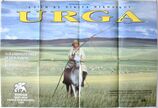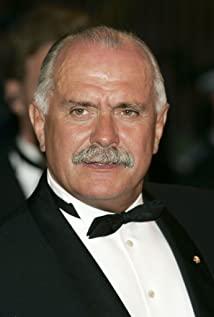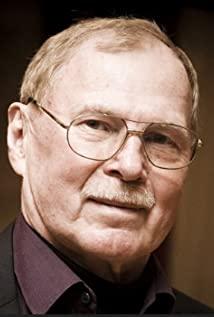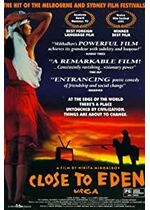-
Thaddeus 2022-04-20 09:02:34
About the identity of the ethnic group, the division of the country, and the inexorable coming of the times, they all talk about God with an ending without dialogue: on the way home, sitting on the grass and dreaming: Genghis Khan asked him where he was as a Mongolian horse and weapon? He looked back at the bicycle and TV that he had just bought, and was ordered to use a horse to be put to death... He woke up with a prairie and a rainbow, and he hurried home to put on the TV, and the broadcast...
-
Demond 2022-04-20 09:02:34
Shadow 19229: Times are constantly changing, but the prairie and the same language are not seen in the images of memory, then there is another child, his name is Genghis Khan! But there's oil here, so there's the...
-
Malvina 2022-03-20 09:02:55
The main question is - don't forget who your great-grandfather was. It is a pity that after a few years Mikhalkov slowly regarded Stalin as his great-grandfather. The last shot has a profound meaning: there are so many ruts on the grassland, some heading east and some west, each trying to bypass the place it wants to reach in the distance, but in the end every rut has no choice but to lead there, There stood a tall chimney, smoking black...
-
Alexandrine 2022-03-20 09:02:55
I played the accordion song played by my daughter in Emma countless times when I was a child! ! I was shocked when the prelude came out. Hmm, it's very, very beautiful. After reading it, I don't want to stay in Beijing anymore, I want to buy a train ticket to Erenhot...
-
Connie 2022-03-20 09:02:55
The magical combination of natural living conditions and modern civilization, realism and magic, a strong taste of ancestor...
-
Renee 2022-03-20 09:02:55
Chinese films by master Mikhalkov. The vast grassland real scene, if you can see it on the big screen, it must be quite shocking (just like the Siberian Lin Haiyi show in his lens). Regarding how the traditional spirit is preserved in modern times, the film does not give a direct answer, but conveys the theme of continuation with the final...
-
Earnest 2022-03-19 09:01:09
It's not a Mongolian who made such a movie, it's not a Chinese, it's a Russian! This nation that understands the spirit of the West and the East, this nation of contradictions and suffering, this nation destined to be great. Well, back to the film itself, I used a very malicious thinking to speculate behind the film. The director of the Soviet Union used the decline of the Mongolians to express the loneliness of the disintegration of their country. What happened to the Mongolians after Genghis...
-
Granville 2022-03-19 09:01:09
Two nations with regrets in their...
-
Luther 2022-03-19 09:01:09
Russian movies always have a strong poetic and literary color, the vast land under the lens, and the sincere love for the land of life. I didn't expect that the director had such a good work before "Poison Sun". The Russian nation's lack of sense of belonging and identity after its disintegration, and the advance and retreat of the nomads in the face of the irreversible industrial wave, those surreal shots are the finishing touch: the past, the present and the future are intertwined, said out...
-
Adolf 2022-03-19 09:01:09
There are a lot of metaphors in the film with good scenery and art that "Urga" is Mongolian, which means putting on a horse pole. A set of horse poles is a traditional Mongolian herding tool and the most accessible weapon. When Mongolian men and women are having fun, if they put a horse pole on the grass, people from afar will know how to avoid it when they see it. The Mongols once ruled Russia for more than 270...
Close to Eden Comments
-
Daniella 2022-02-25 08:02:45
When you sing old songs and ride near the strange eyes of urbanites...
I watched this film twice. Through the simple story of two men, the film expresses the grand proposition of history, nation and culture being impacted and fractured in the context of globalization, and it is very artistic, vivid and natural. Not contrived.
The Mongolian Gomba messenger gallops... -
Nicole 2022-02-25 08:02:45
Genghis Khan vs Rambo
Although I always brag that I understand Soviet and Eastern European films, in all fairness I pull the most American films. American films are novels, with strong skills, easy to analyze and easy to learn, while Russian films are poems, how to analyze poems! It's like "Looking up at the bright...
Top cast
Director: Nikita Mikhalkov
Language: Mongolian,Russian,Mandarin Release date: October 30, 1992







